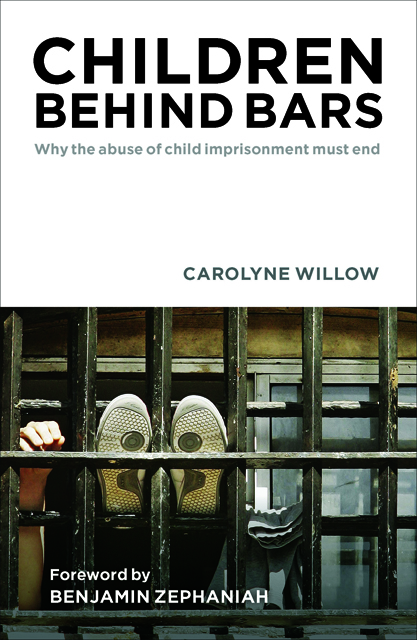Book contents
- Frontmatter
- Contents
- List of tables
- About the author
- Acknowledgements
- Preface
- Foreword by Benjamin Zephaniah
- one Introduction
- two ‘Things were not right at home’
- three ‘They just don’t listen’
- four ‘I think it’s quite like rape’
- five ‘I can’t breathe’
- six ‘What gives them the right to hit a child in the nose?’
- seven ‘We should be able to hug our families’
- eight ‘Every night I’m starving’
- nine Children were ‘given bags to urinate in’
- ten ‘The violence is unbelievable’
- eleven ‘Listen to the kids’
- twelve They shouldn’t be there
- Notes
- Index
- Frontmatter
- Contents
- List of tables
- About the author
- Acknowledgements
- Preface
- Foreword by Benjamin Zephaniah
- one Introduction
- two ‘Things were not right at home’
- three ‘They just don’t listen’
- four ‘I think it’s quite like rape’
- five ‘I can’t breathe’
- six ‘What gives them the right to hit a child in the nose?’
- seven ‘We should be able to hug our families’
- eight ‘Every night I’m starving’
- nine Children were ‘given bags to urinate in’
- ten ‘The violence is unbelievable’
- eleven ‘Listen to the kids’
- twelve They shouldn’t be there
- Notes
- Index
Summary
The British abhor child abuse. The dam burst of disgust following the outing of Jimmy Savile as a prolific child sex offender, and the outpouring of sympathy for his victims, was testament to this. Maria Miller, then government minister responsible for the BBC, which employed Savile for 40 years, described his abuse as ‘absolutely horrifying’. The prime minister, David Cameron, said the nation was ‘appalled’ by the allegations about the deceased and knighted disc jockey and television presenter, adding that ‘they seem to get worse by the day’. Many separate inquiries were established into the conduct of the BBC, the Department of Health, individual hospitals, the police and the Crown Prosecution Service. As accusations resurfaced about abuse in children’s homes in North Wales, which had been the subject of a public inquiry in the 1990s, the home secretary, Theresa May, announced another review and told parliament that ‘child abuse is a hateful, abhorrent and disgusting crime’. In January 2013, a joint report by the Metropolitan Police and the National Society for the Prevention of Cruelty to Children (NSPCC) quoted a supervisor on the charity’s helpline:
The whole thing … has brought child abuse to the fore…. Seeing people who are adults now talking about how nobody spoke up for them in the past, is a powerful motivator to speak up for children in the present.
But there is one category of children for whom degrading and abusive treatment is more likely than a warm winter coat or a place at university. This is no secret within some parts of government: there are enough official documents depicting children’s suffering to supply an origami club with paper for the next 100 years.
There is a small group of children who have suffered the most horrendous hardships in their early lives – poverty, family breakdown, violence and bereavement to begin the list – for whom exile to prison is the sanctioned response to their troubled behaviour. Here they are exposed to environments and practices that in the community would entitle them to state intervention. Ninety years ago, the first international children’s rights agreement declared ‘the delinquent child must be reclaimed’. Imprisonment is the epitome of physical and psychological exclusion.
Our apparent devotion to punishment has led to the surrendering of child protection norms for young offenders.
- Type
- Chapter
- Information
- Children behind BarsWhy the Abuse of Child Imprisonment Must End, pp. 1 - 24Publisher: Bristol University PressPrint publication year: 2015



